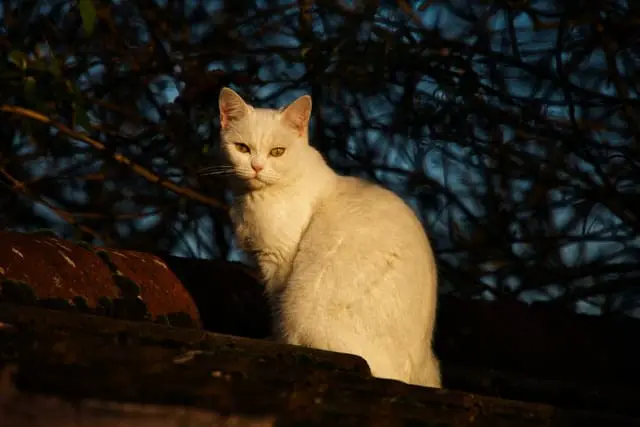
Whenever your cat engages in a somewhat odd behavior, such as running out of its litter box as quickly as possible after pooping, you tend to call it “crazy” with a laugh. But what if you weren’t totally wrong? After all, why couldn’t our feline friends also suffer from mental illnesses!
What is a mental illness?
A mental illness is an illness that affects a person’s behavior, mood, and thoughts. It often causes distress and suffering, and sometimes even leads to suicide.
Among humans, 1 person in 5 is affected by a mental illness: schizophrenia, bipolar disorder, depression, post-traumatic stress, OCD, Asperger’s syndrome… A considerable figure which shows how widespread these illnesses are. Fortunately, it is relatively easy to detect them and, subsequently, to provide appropriate treatment.
Since cats’ brains aren’t all that different from humans’, is it possible that they too can be what is popularly called “crazy” or mentally ill? The answer is obviously yes! But you still have to know how to detect it!
How do you know if a cat is crazy?

At present, there is very little scientific research on the subject. For this reason, it is difficult to accurately diagnose mental illness in our feline friends. However, some signs should still alert you. Here are which ones:
- The cat licks itself compulsively, sometimes to the point of irritating the skin; it meows excessively; it suckles the blankets …: if no other medical cause is found, it probably suffers from obsessive compulsive disorder (OCD) related to anxiety for example. These behavioral disorders cause cats to engage in behaviors repeatedly and exaggeratedly without any real purpose. The only way to put an end to these behaviors is to reassure them by establishing a living environment regulated like a clock: meals at the same time, daily time to play, for hugs, eliminate stressful noises…
- It fails to stay in place: the cat may have a hyperactivity disorder.
- It seems depressed, even becomes aggressive: the cat can suffer from depression, the symptoms of which are often confused with those of senile dementia.
- The cat meows loudly at night, seems disoriented, wanders aimlessly: if it is over 15 years old, it probably has cognitive dysfunction syndrome, also called senile dementia. This mental illness resembles our Alzheimer’s disease.
- It has spasms in their back, looks panicked, cannot stand being touched, suddenly runs away…: these symptoms may indicate a syndrome of feline hyperesthesia.
If you observe one or more of the symptoms described above, or if you suspect your cat has something wrong with their brain, do not hesitate to speak to your veterinarian.






